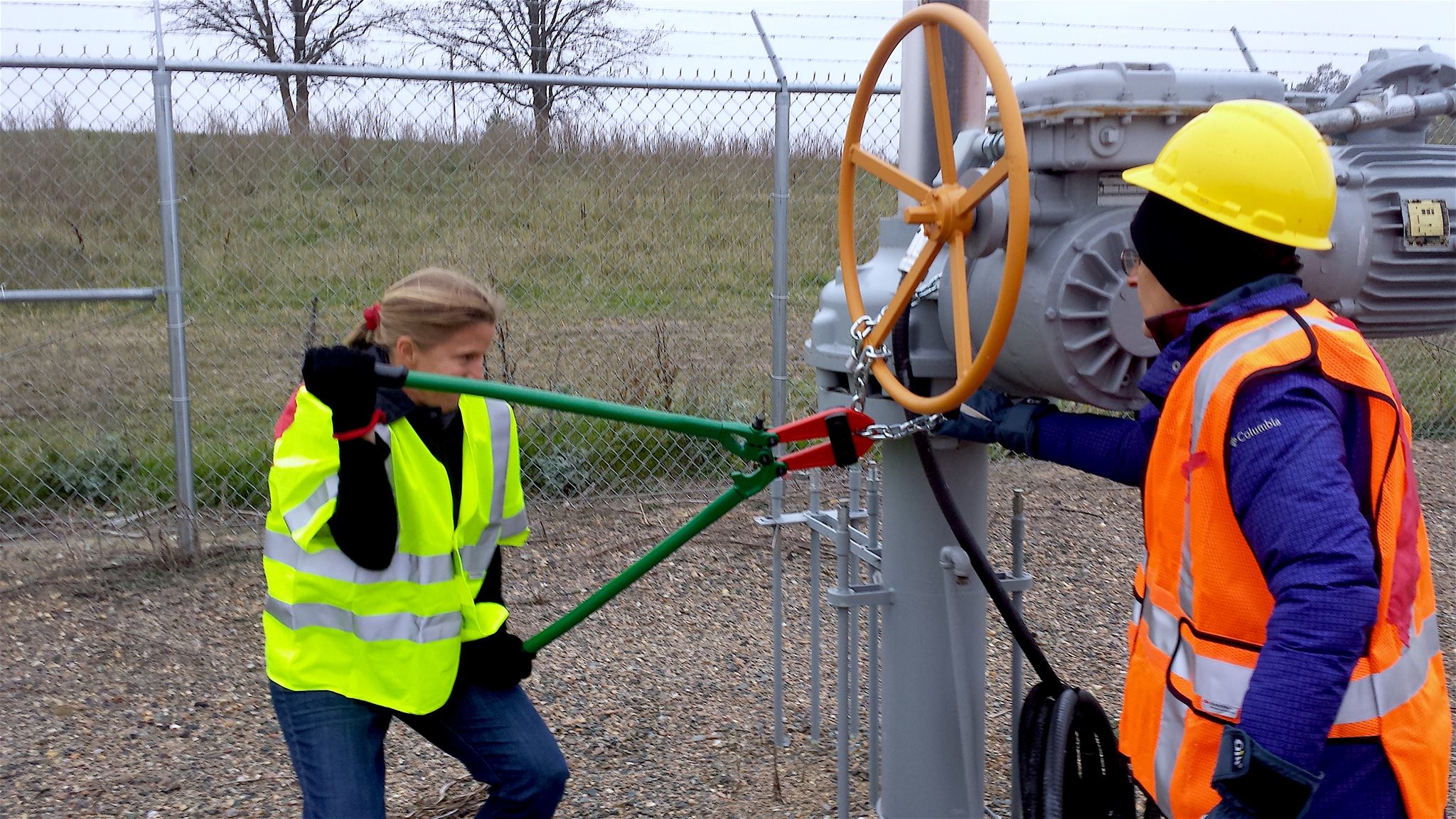On October 11, 2016, after months of studying how to undertake their action safely, five climate activists from Washington and Oregon shut down key pipelines used to transport tar sands oil from Alberta to the United States.
As The Nation noted in an article on the action, “manually closing the emergency shut-off valves on tar sands pipelines in Washington, Montana, North Dakota, and Minnesota … surely stands among the boldest acts of non-violent civil disobedience, on climate or any other issue, in memory.”
The activists stopped the pipelines from pumping as much as 15 per cent of daily oil demand in the U.S., which calculates as roughly three million barrels of oil.
“Three of the valve-turners have been tried and convicted of felony charges — Ken Ward in Washington, Leonard Higgins in Montana, and Michael Foster in North Dakota — and one of them, Foster, has served time in prison,” according to The Nation.
Foster was sentenced to one year, but in the end served six months in a state prison before being released on parole.
The trial for the two remaining valve-turners — Annette Klapstein and Emily Johnston — along with support-team member Ben Joldersma began on October 8.
Implications of ‘necessity defence’
This trial could have historic significance because while the previous three defendants were denied the “necessity defence,” the court allowed Klapstein, Johnston, and Joldersma to argue that their actions were necessary and legally justified given the harm of climate change.
The necessity defence acknowledges that while technically a crime was committed, it was done to prevent a greater harm.
Rather than proceeding to trial and having witnesses called who could speak to climate crimes, the judge acquitted the three defendants.
But the initial acceptance of the necessity defence could have implications for future anti-pipeline actions in both the U.S. and Canada.
In May 2018, climate activist Tom Sandborn called on B.C. Supreme Court Judge Kenneth Affleck to accept the “defence of necessity” argument after Sandborn was arrested and charged for blocking a gate at the Trans Mountain pipeline terminal in Burnaby.
But Affleck said the “excuse of necessity has no air of reality in these proceedings,” that its use must be “strictly controlled” and that a defendant must show there was “no other viable option” other than the action and that there must be an “imminent risk of an immediate peril.”
And despite the lack of free, prior and informed consent — highlighted in the United Nations Declaration on the Rights of Indigenous Peoples — for the pipeline, and a DARA International study linking 400,000 deaths worldwide each year to climate change, the judge ruled, “The work is lawful and to call it a crime is just a slogan, not an argument.”
Valve-turning in Canada
There have been pipeline valve-turning actions in this country too.
In December 2015, three men turned off a valve for the Enbridge Line 9 pipeline near St-Justine-de-Newton where it crosses the Ontario-Quebec border. They were charged with mischief, trespassing (breaking and entering), and obstruction.
Then just two weeks later, three women turned a manual hand wheel at a station in Sarnia and interrupted the flow of the pipeline for two hours.
In the latter case, Vanessa Gray, Sarah Scanlon and Stone Stewart were charged with mischief endangering lives, a charge that carries a maximum penalty of life imprisonment, and mischief over $5,000.
In January 2017, after a long court battle, the charges were withdrawn after Gray, Scanlon and Stewart agreed to an 18-month court order to stay away from Enbridge property.
The now-defeated 1.1 million barrel-per-day Energy East pipeline would have been 4,500 kilometres in length with a shut-off valve located every 30 kilometres along the route. That would have been about 150 shut-off valves susceptible to this type of action.
The same would generally still hold true for the 300,000 barrel-per-day Line 9 pipeline that runs about 831 kilometres from Sarnia to Montreal and the Trudeau government’s Trans Mountain pipeline that runs about 1,150 kilometres in length.
“Allowing [the necessity] defence will embolden other activists to commit crimes to further their causes,” stated the Minnesota Chamber of Commerce about the court hearings for Klapstein, Johnston, and Joldersma.
Reflecting on the action, valve-turner Klapstein said: “What better thing to do with your retirement than attempt to salvage a habitable world for your children and grandchildren — I can’t think of anything better.”
Brent Patterson is an activist-blogger who writes this monthly column on inspiring stories of global resistance to neoliberalism and climate change.
Photo: Valve Turners/Facebook
Help make rabble sustainable. Please consider supporting our work with a monthly donation. Support rabble.ca today for as little as $1 per month!





